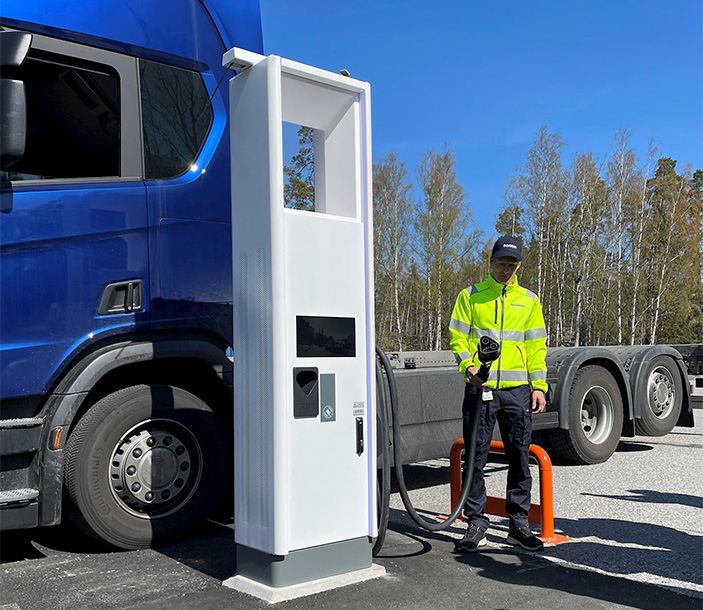The sales figures make it increasingly plain that fuel cell passenger cars have no future, but hydrogen fans still have high hopes for applications like long-distance trucking, in which long range and fast refueling times are important.
The endless articles churned out by anti-EV interests tend to have a lot to say about hydrogen, along with CNG and e-fuels. During a recent conversation with Rustam Kocher, once Charging Infrastructure Lead at Daimler Trucks North America and now a consultant (watch for the full interview in the next print issue of Charged), I asked if there’s a real danger that the trucking industry will go down one of those dead-end roads.
“There is. I am quite worried about hydrogen sucking some of the oxygen and funds out of the room,” said Rustam. “To me, hydrogen is a way that the oil and gas industry can stay relevant. What are they good at? They’re good at pumping things out of the ground, storing it, refining it, piping it or trucking it to a place, compressing it or putting into the tank and then dispensing it. Hydrogen fits all those things really well. But it doesn’t work. It’s not efficient. It’s extremely expensive. It’s technologically almost impossible to do it safely.
“I am quite worried about hydrogen sucking some of the oxygen and funds out of the room,” said Rustam. “To me, hydrogen is a way that the oil and gas industry can stay relevant.”
“Big Oil’s got a lot of resources and money to push this narrative, and you see it all day, all the time. When we look at the federal funding for charging and whatnot, they always have hydrogen in there at a similar amount of money as BEV. There’s no need for it. There are almost no hydrogen vehicles out there because they cost so much more per mile to run.”

SEE ALSO: ABB E-mobility and Scania successfully test Megawatt Charging System
Hopefully, advancing technology will make the point moot before too many more taxpayer billions are spent. “I love the global effort to standardize the Megawatt Charging System, and hopefully Tesla will come on board with the rest of the industry,” Kocher told me. “MCS should put a bullet in hydrogen, because the only thing that they have going for them is speed of refueling. With MCS it’s the same speed. In fact, it might be faster, so hydrogen can go pound salt.”
“Batteries are only going one way,” Kocher continued. “Gravimetric density is improving, volumetric density is improving, charging speed is improving, and all those curves are heading the right way. None of them are slowing down, so we know that batteries are on an improvement curve that will continue. Solid-state batteries can charge almost instantly. StoreDot has those organic-chemistry batteries, which can charge super-quick. So if you can get your Megawatt Charging System and a big StoreDot battery, we can charge it in maybe 12 minutes, 15 minutes.”